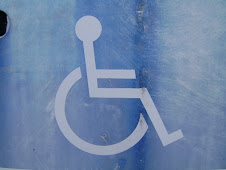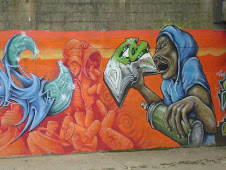Provide a definition of Information Technology/Information Communications Technology.
Information Technology or (IT) as otherwise known is the "study, design, development, implementation, support or management of computer based information systems, particularly software applications and computer hardware"
Retrieved from (http://www.wikipedia.org.wiki/Information_technology)%2005/05/08
Information Communications encompasses computers,Internet, intranet, cell phone, telephones, fax machines. There list is end list.
Consider the definition of IT you have provided. How is this form of technology prevalent in our society? How common place has it become?
Within our society today we have become reliant on IT. It would appear that with the increasing growth of technology we as human beings have become more industrialised and robotic in our actions, relating to communication and everyday activities. For example the use of cash has become a novelty with eftpos and credit cards being the norm. This is leading to increasing problems of individuals not understanding the importance and value of money and becoming in debt.
Text messaging and email has lead to misinterpretation of the information relaid to the individuals receiving the message, through depersonalisation and lack of correct terminology and the use of abbreviations and no punctuation. Tradition forms of letter writing has been lost and receiving post is now a novelty.
This highlights that Information technology is prevalent in our society, as it has had both negative and positive effects on the human race. We can now be contacted the majority of the time anywhere any time, through the use of cell phones and quickly by email instead of pigeon post.
So it is fair to say that IT has become common place within the younger generation, and is slowly catching on with the older demographic with their exploring the Internet and even some cellphones.
What IT devices or systems do you feel comfortable and competent using?
I am most comfortable using a cellphone as I feel them easy to navigate around. I use computers and am comfortable emailing and using face book, but I struggle using things such as you tube and having to do difficult tasks such as upload information. Other devices which I can use and am comfortable with are fax machines, telephone, digital cameras, DVD players, mp3 players.
Thinking about your own fieldwork experiences consider how IT is being used in Occupational Therapy practice?
IT was used in my settings to store clients notes to save space within the hospital and to have readily available and quick access to client notes from any point within the hospital. It was also used to have access to products and services within the hospital and business associated with the hospital.
The staff intranet was used for all staff to communicate for example meeting, party's, items for sale. Tele conferencing was used with medical staff throughout the country and overseas.
IT was also used as a means of safety, cellphones were taken out by each staff member and if they had not returned before there estimated time they were phoned to ensure they were ok.
More advanced IT that was used was driving simulators to individuals who for example had a stroke and wanted to be able to drive again. This was used to assess their ability safely before putting them on the open road.
What ethical implications arise from the capturing, sharing and transferring of information via IT devices?
Now that everything is readily available through the Internet and online, it is becoming increasing difficult to obtain the desired levels of confidentiality. For example, if you have a credit card or own a house or have been in the media it is easy to obtain information about an individual through the Internet. This raises issues around informed consent also.
Text message bullying has also raised many concerns between young individuals. Social networking sites such as face book, blogs and bebo are increasing individuals vulnerability. When private/ personal information is published on these sites you may become a victim of online abuse.
Provide a definition of Computer Ethics.
Computer ethics is a branch of practical philosophy which deals with how computing professionals should make decisions regarding professional and social conduct.
Retrieved February 14, 2007, from http://en.wikipedia.org/wiki/Computer_ethics
Provide a definiton of Intellectual Property.
In law, intellectual property (IP) is an umbrella term for various legal entitlements which attach to certain types of information, ideas, or other intangibles in their expressed form. The holder of this legal entitlement is generally entitled to exercise various exclusive rights in relation to the subject matter of the IP. The term intellectual property reflects the idea that this subject matter is the product of the mind or the intellect, and that IP rights may be protected at law in the same way as any other form of property. However, the use of the term and the concepts it is said to embody are the subject of some controversy
Retrieved February 14, 2007, http://en.wikipedia.org/wiki/Intellectual_property
Provide a definiton of Social Justice.
Social justice mostly refers to an ideal of society, where "justice" refers to economic status rather than to the administration of laws. It is based on the idea of a society which gives individuals and groups fair treatment and a just share of the benefits of society, although what is "fair treatment" and a "just share" must remain unclear or subject to interpretation.
Retreived Februry 14, 2007, from http://en.wikipedia.org/wiki/Social_justice
Provide a definiton of Informed Consent.
Informed consent is a legal condition whereby a person can be said to have given consent based upon an appreciation and understanding of the facts and implications of an action.
Retrieved February 14, 2007, from http://en.wikipedia.org/wiki/Informed_consent
In your own words briefly summarise why or why not a greater understanding of ITC and the ethical issues it encompasses will help us in our pratice and daily lives?
Being aware of the implications of information technology/communications will assist us not to put ourselves in vunerable situations, that may result in harm to ourselves or another individual.
It highlights the importance of confidentiality and how easy it is with the use of ITC for individauls to obtain information and how easy information can fall into the wrong hands.
Subscribe to:
Post Comments (Atom)



No comments:
Post a Comment